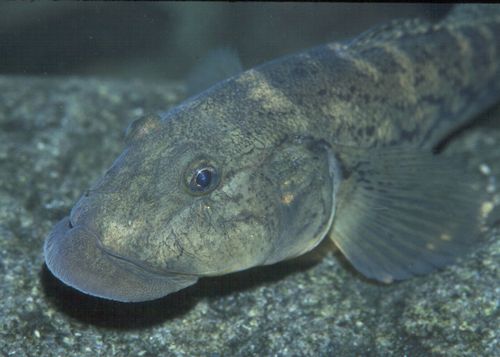Fish: Native Species
Scientific name: Awaous guamensis
Common name(s): ‘O‘opu nākea

Status: Indigenous
Habitat: From just above sea level to mid-elevation reaches of streams
Preferred Area of Stream: Deeper water pools and slow to moderate velocity runs.
Range in Hawai‘i: Common on all Hawaiian Islands
Diet: Omnivorous and will eat a wide range of algae, worms, and aquatic insects. Fishing with worms is effective way to catch these fish.
Predators: Birds such as ‘auku‘u (black-crowned night-herons). When it comes through the estuary many species of native fish will eat ‘o‘opu nākea such as āholehole, ulua (Caranx spp.), moi (Polydactylus sexfilis) and kākü (Sphyraena barracuda). ‘O‘opu akupa will eat this species in the lower reaches of streams where their range overlaps. Introduced fish are a problem because they have brought in new parasites and all prey on this and other native ‘o‘opu species.
Fact: ‘O‘opu nākea are the largest of the native Hawaiian stream fish and may achieve a size of over 14 inches (35 cm) and some are so big you can reportedly put your fist in their mouth. They are considered a delicacy and an important recreational fishery for them still exists on Kaua‘i in Hanalei and Waimea Rivers .
|

